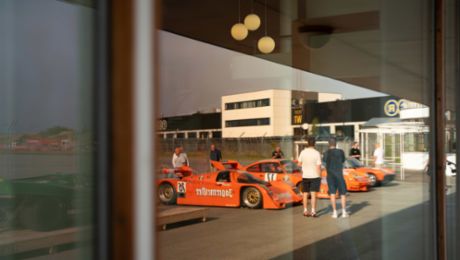Mr. Mertke, what does the Rennsport Reunion mean to Porsche and to you personally?
Sebastian Mertke: The Rennsport Reunion is an absolute highlight of this anniversary year featuring many fantastic events, be it the show in Stuttgart in June or Icons of Porsche in Dubai in November. We bring our community members from around the world together. I was in Laguna Seca for the first time in 2015 and even then I was blown away by how many people traveled there for Porsche. This year, it was more than 90,000 people – incredible! There were over 30,000 visitors from our Porsche Clubs alone, from the USA, Latin America, Europe, and Asia. It was a worthy setting for this year’s major anniversaries.
What can you offer the international Porsche community here?
Sebastian Mertke: Many activities come together in a unique way here at the Rennsport Reunion – presentations of vehicles ranging from tractors and historic cars to the GT race car, meetings with personalities, and live races. And in our day-to-day work away from these highlights, too, our most important mission is to promote international dialogue and enable our market organizations to collaborate more intensively with their local communities. Another priority is to show the customers all the different ways in which Porsche gives them the opportunity to be a part of the community. For example, there’s not only the Porsche Clubs, but also the Porsche Golf Circle. This gives people the opportunity to play golf with, for example, Paul Casey in Pebble Beach as well as experience this fantastic Rennsport Reunion event with us.
How has the feedback been?
Sebastian Mertke: Overwhelming! Registrations come from all over the world. Our Golf Circle was created as a digital platform for a community revolving around the brand, and brings together two passions. We know that a lot of our customers have overlapping interests. They can now experience exclusive events with us while meeting like-minded people. It is becoming more and more important for us as a manufacturer to not only offer fascinating products, but also facilitate major Porsche moments. We are aware of the power of emotions. Which is why we also established the GT Circle as another digital, global platform for all matters concerning performance driving. And in the analog part of it, as it were, members can meet at racetracks with their GT vehicles during track days.
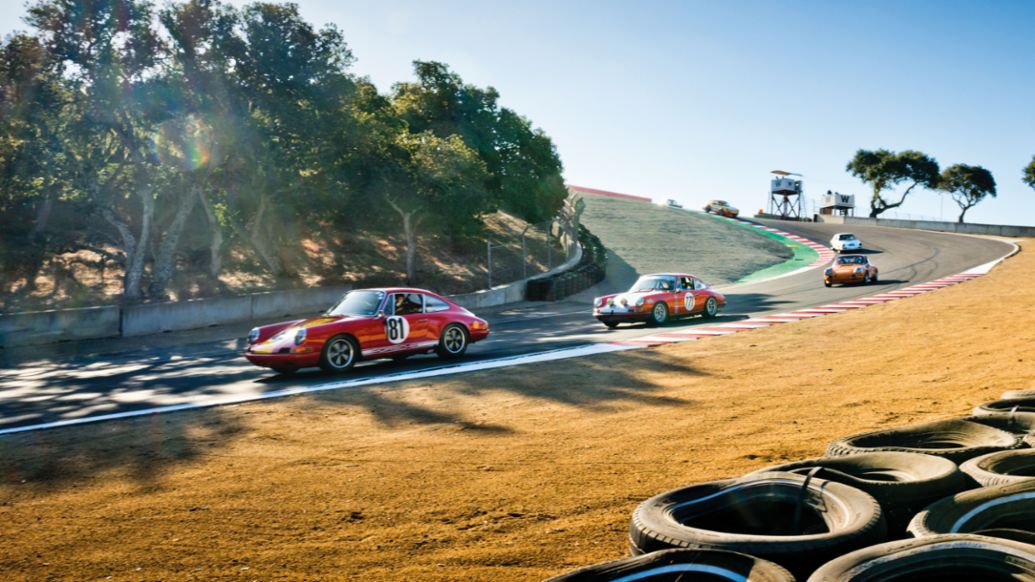
What sets the global Porsche community apart?
Sebastian Mertke: It all starts with the solidarity that stems back to our time as a small-scale sports car manufacturer. We always distinguished ourselves with our intelligent use of resources, by identifying smart avenues, and above all by focusing on people. One of our brand’s strengths is the fact that the products have unmistakably effused the Porsche spirit for 75 years. I believe this stands for values and ideals that many Porsche enthusiasts practice, too. The story of the family behind the company is also unique. Heritage and community are inextricably linked at Porsche. The brand is shaped by a sense of belonging, which we firmly believe can be further developed.
How important is it to you to continue to support this community spirit in the future?
Sebastian Mertke: It’s the most important task that we in my team have. From a global perspective, the challenges vary from region to region, so you have to adopt a differentiated approach. In Europe and the USA, the Clubs need to remain attractive to younger target groups, too. The Porsche Club of America is doing exemplary work here with family offerings and its PCA Juniors Program. This isn’t the top issue in Asia as the members of the Porsche Clubs there are considerably younger on average. There are different challenges there. For example, there’s a lot of demand for being able to use the vehicles away from public roads. The company therefore developed a clear Experience Center strategy to afford customers in all the key markets access to racetracks. It’s also important that we strengthen our communication with independent, loose car communities, which primarily organize themselves via social media channels. Be it Luftgekühlt launched in the USA; F.A.T. established in Austria by Dr. Wolfgang Porsche’s son Ferdinand; or Das Treffen in Thailand, the biggest Porsche event in Southeast Asia, which regularly attracts more than 500 vehicles. Events of this kind introduce the brand and the topic of automobiles in general to younger target groups, too.
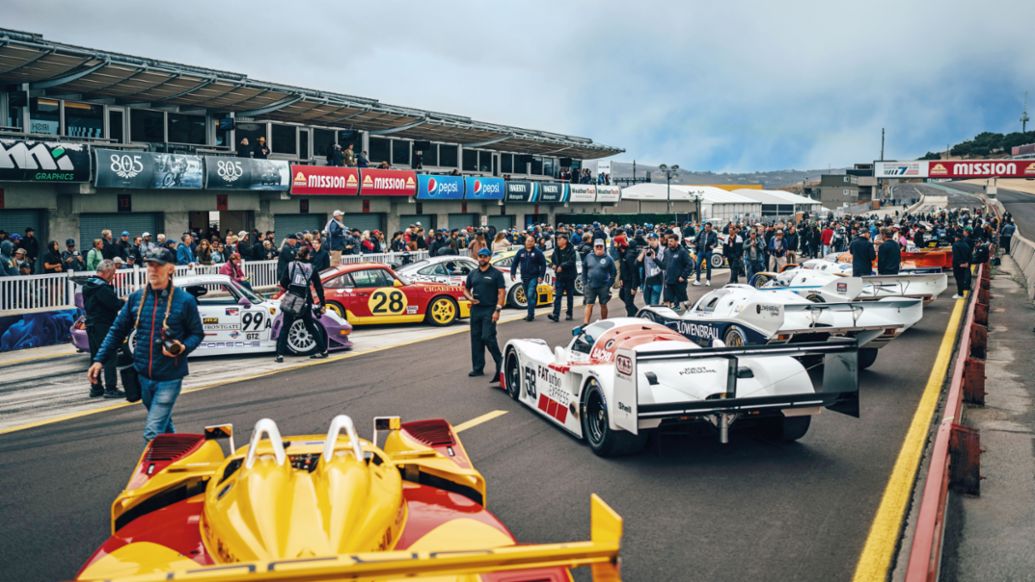
Sounds like a reboot of the early days in the 1950s. Then, too, a lot came about through customer initiative.
Sebastian Mertke: It can definitely be called a grassroots movement. It was all organic, and happened without any assistance from us. Porsche customers feel like a close-knit community with special vehicles. They always wanted to share their enthusiasm for the brand with others. That’s why the first Porsche Club was founded back in 1952. As a result, a new position was created some 50 years ago, making Ilse Nädele responsible for Club management at Porsche. In this respect, she was a pioneer. Many things were not as organized as they are today, but her work established a basis that made the promotion of Porsche Clubs possible some 20 years ago. My predecessor Sandra Siegloch then further professionalized it all. What all the customers share in common is the community spirit and a love of the brand. This is unique and also a very valuable asset. With Porsche, the community always comes as standard with the car!
The community is divided into many subgroups. What unusual examples come to mind?
Sebastian Mertke: The array of passions is fascinating. There’s an official Porsche Club for model cars, for example. Some of the members own thousands of models and have to rent entire warehouses for their collections. And in Europe in particular, there’s a very well-established Porsche tractor community. It’s wonderful to see the owners not only restoring, but also actually using the vehicles – including here at the Rennsport Reunion. We’ve had events on the Grossglockner mountain with more than 100 tractors. And to give a more recent example, a group was formed within the Porsche Club of America that’s interested in historic Porsche bikes, and which organizes joint bike rides lasting several days. And we offer the Roads App, which shows our customers routes where they can enjoy their sports car. The wonderful thing about Porsche is that there are so many products and topics which trigger fascination.
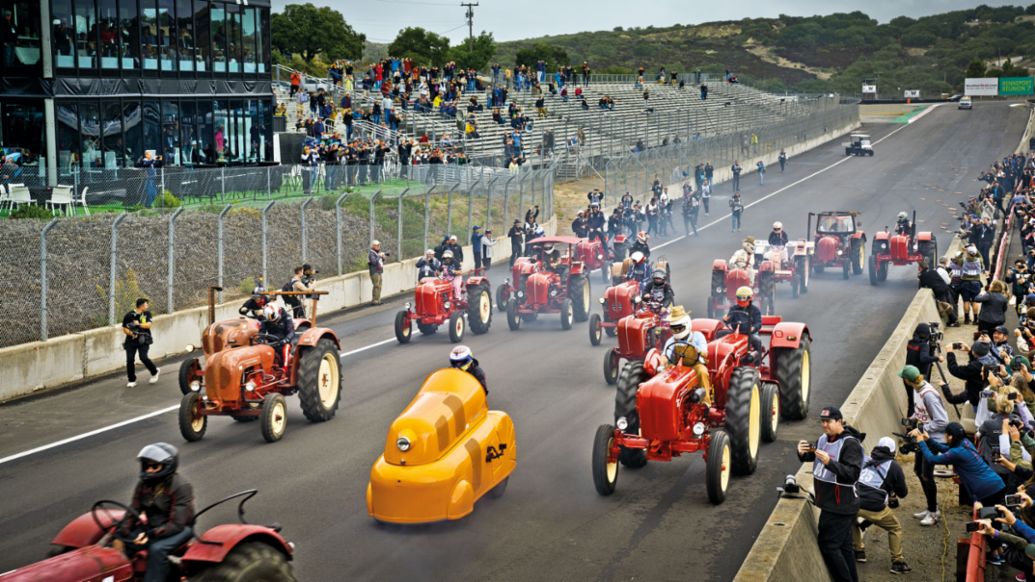
What with all this, how important is the 911 today?
Sebastian Mertke: The 911 is the brand identity’s primary anchor point, in part because of its 60-year history. There are countless stories about the 911. It’s an important linking element, especially for the Clubs. But I’m sure the Taycan could assume this role, too. The efficient use of resources is typical of Porsche – and this is precisely what the brand’s first all-electric sports car stands for. People already love it, and I believe it will become an icon just like the 911 and will accompany our community on the path to electrification.
Your job will therefore remain interesting. How did you end up at Porsche and what were your first touchpoints with the community?
Sebastian Mertke: My first job at Porsche was in 2012, around the time Porsche announced it would be returning to Le Mans. I joined the Motorsport Marketing department, and the three years of consecutive Le Mans overall wins were an experience I will never forget. This is also where I had my first touchpoints with the Porsche community. Because the passion people feel for the brand is nowhere more intense than in motorsport – so this was the perfect starting point for me to immerse myself in this fascinating world. But this passion needs to be continuously nurtured in every possible way. In my area of responsibility, we therefore have a clear orientation toward future goals, and the topic of a strong global community is an integral part of our Strategy 2030. There’s a great deal to do, and I look forward to the coming years with the Porsche Clubs and communities as a global family.
Info
Text first published in the Porsche magazine Christophorus 409.
Author: Thomas Ammann
Photos: Porsche
Copyright: All images, videos and audio files published in this article are subject to copyright. Reproduction in whole or in part is not permitted without the written consent of Dr. Ing. h.c. F. Porsche AG. Please contact newsroom@porsche.com for further information.
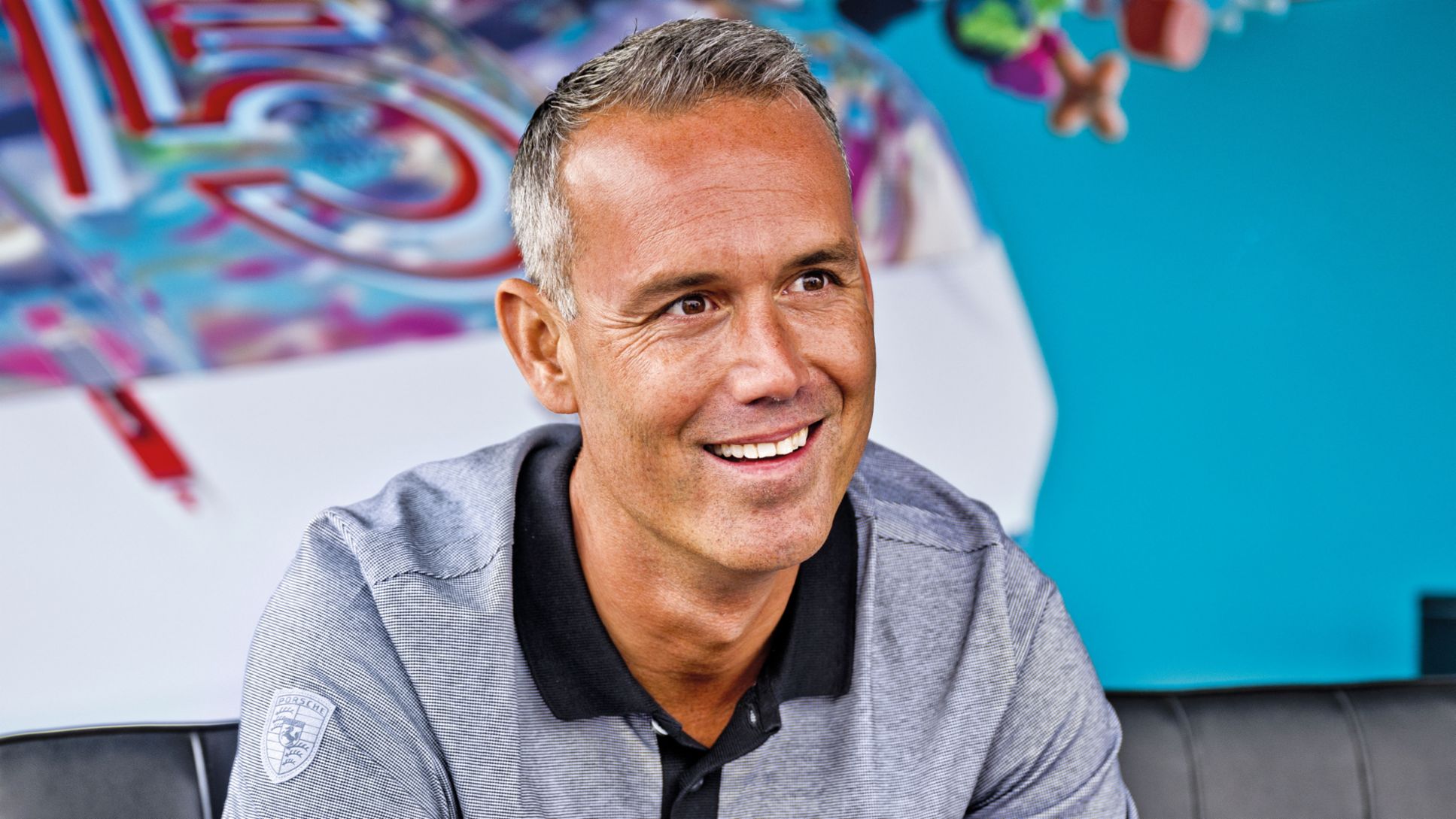

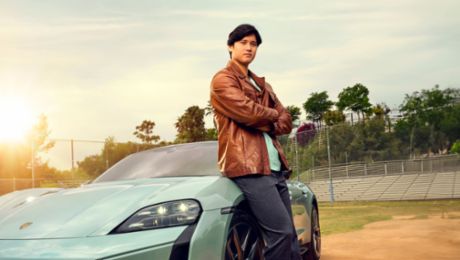.jpg)
